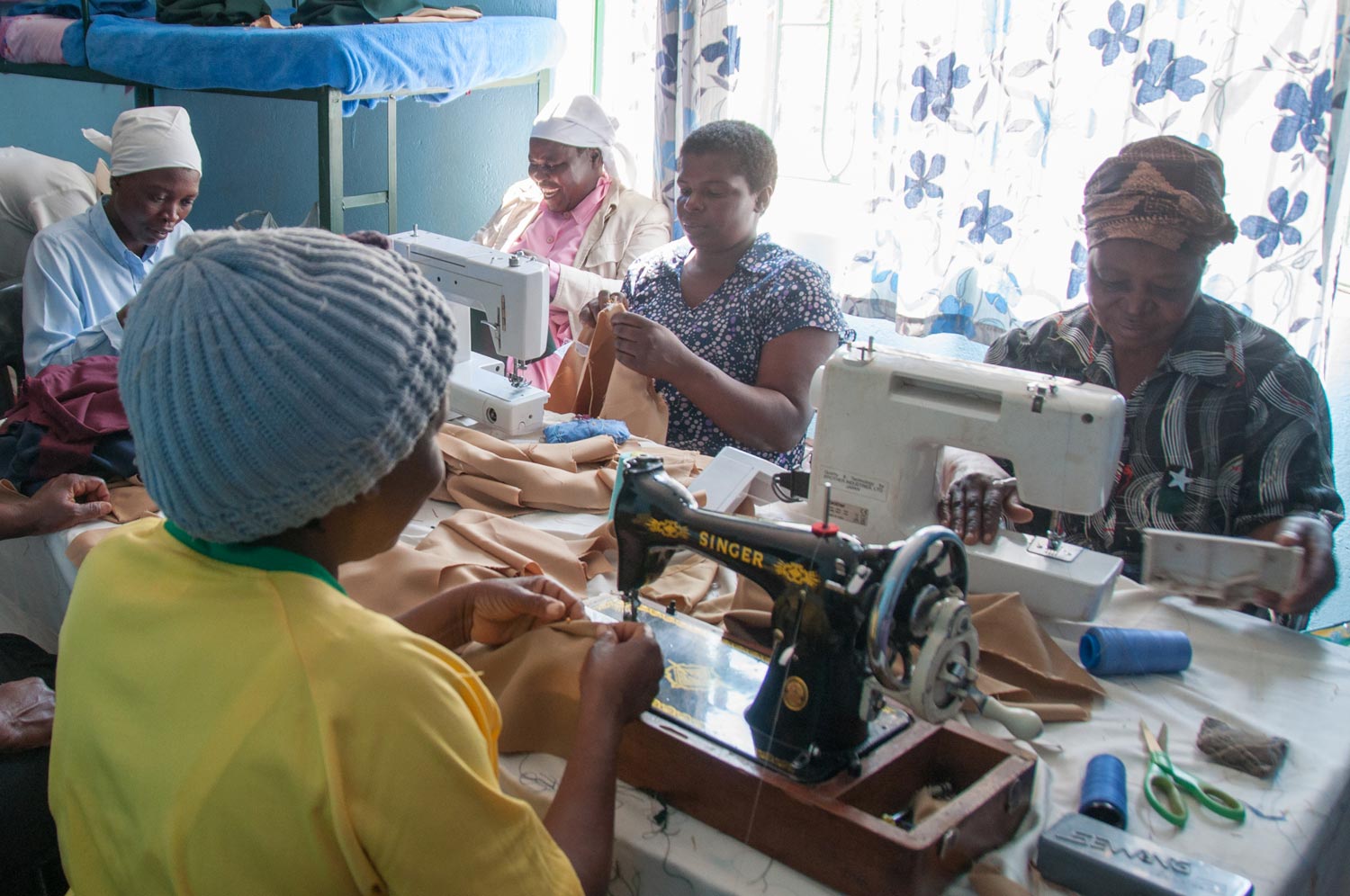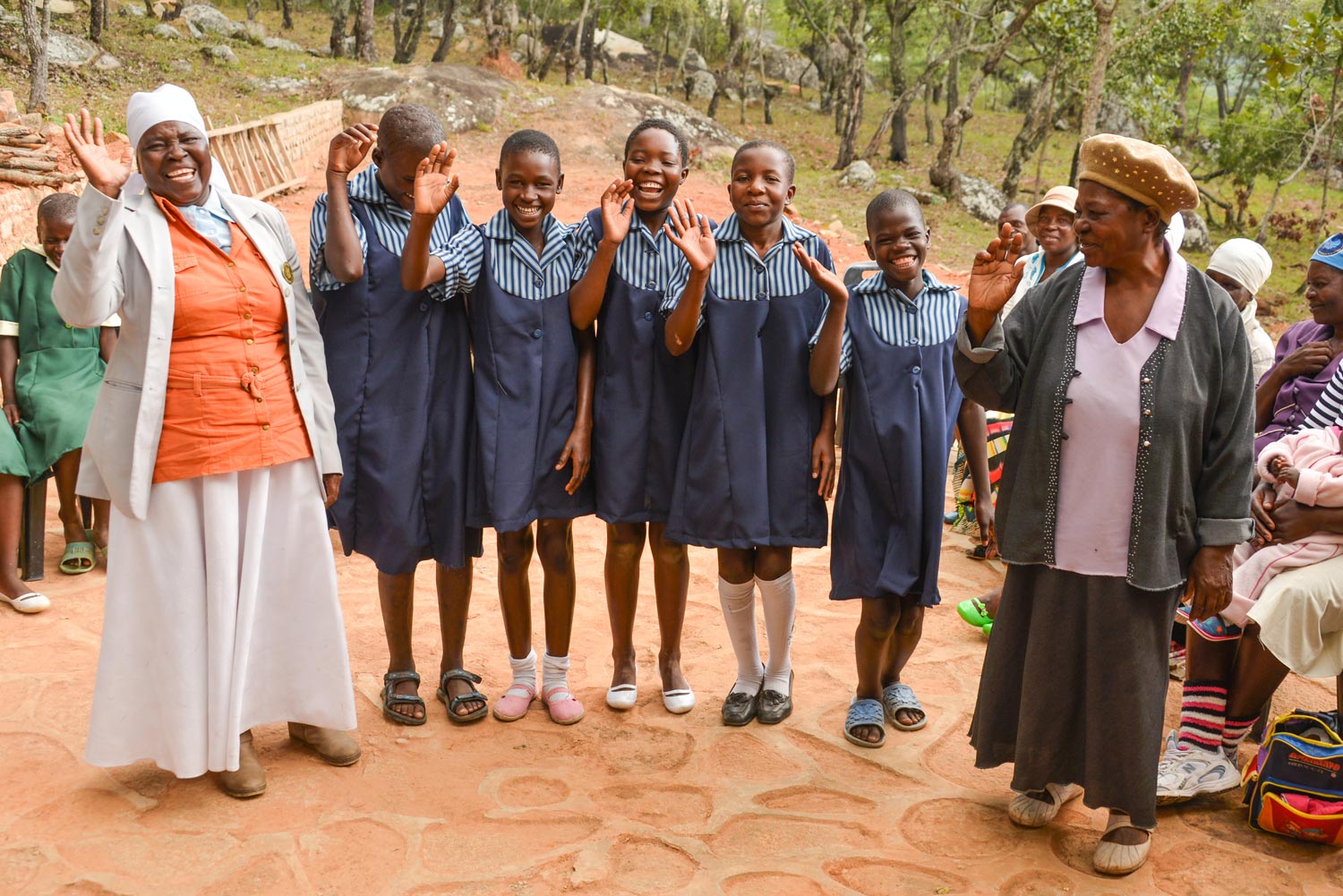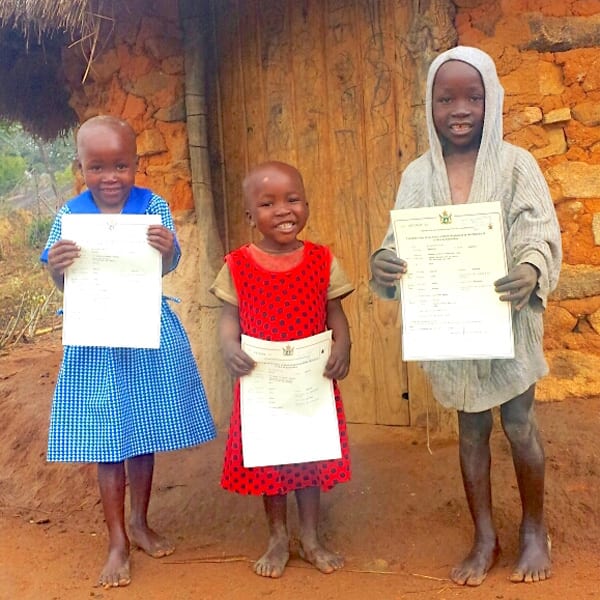Every child deserves an education to help them reach their full potential. The country’s future depends on children acquiring the knowledge and skills they need to contribute to the social and economic development of their communities.
Families in rural Zimbabwe face many barriers to keeping their children in school.
- Many caregivers cannot afford school fees, supplies, or a uniform.
- Illness and inadequate nutrition cause poor concentration and prolonged absences.
- Many children, in particular orphaned children, do not have a birth certificate which is required for school registration and advancement to higher levels.
- Many children lack basic apparel such as shoes.
- Long distances to school keep children at home.
- Parents and caregivers in poor health rely on children to perform essential household work.
- Keeping girls in school presents additional challenges. Societal traditions place more importance on educating boys and lack of menstrual supplies interrupts regular attendance.
There is no “one-off” solution. Keeping children in school requires a commitment to working with families to address a range of issues.
- Bopoma Villages' water, hygiene, and nutrition programs help keep children in school and concentrating on their lessons by building their health and immunity to disease.
- Improving the health of adult caregivers means they are less reliant on children for household tasks and farming.
- Staff worked with families to obtain school fee support from government programs for orphans, local businesses, and individual "well-wishers".
- We helped families obtain birth certificates for their children.
- We trained local volunteers to conduct family visits to reinforce the importance of educating all children and to help caregivers find ways to overcome the particular challenges they face.
- This work is continuing with the local staff
Gogo Catherine and her sewing team
Catherine is a remarkable woman! She is a widow who cares for 3 grandchildren, but has love and energy to help many more! She taught a local group of women to sew, and the women immediately put their new skills to work making school uniforms for orphaned and vulnerable children. Bopoma Villages’ generous donors provided the sewing machines, workspace, and bus fare for the volunteers. Catherine and her team spent many long days cutting, sewing and ironing. The result? Over 350 very happy children were able to attend school in brand new uniforms made just for them!

Educating girls presents many challenges but results in many long-term benefits!
Many parents in rural areas don’t value education for girls and keep them at home to help with household chores, farming, or caring for younger children or caregivers in poor health. Enrolling girls in school can present other challenges such as obtaining birth certificates, uniforms, school supplies and feminine hygiene products. These obstacles result in many girls failing to be educated. Yet, educating girls profoundly impacts their futures and the future of their families and communities.
More education means:
- Fewer child marriages and unwanted pregnancies
- Reduced maternal deaths in childbirth and decreased child deaths
- Improved child nutrition and less stunting due to malnutrition
- Increased likelihood of finding employment and lessening gender pay gaps.
Bopoma Villages worked with families to help send girls to school by assisting families to obtain birth certificates, secure school fee subsidies for orphans and vulnerable children, organized local volunteers to sew uniforms, and taught girls to sew their own feminine hygiene supplies.

Many children have no birth certificate.
Thousands of children, and many adults, in Zimbabwe live without legal status or identity because they have no birth certificate or other form of legal identification. This is a widespread problem that severely restricts the rights and opportunities of individuals and compounds the challenges of daily living.
A birth certificate is required to:
- Register children for school and national examinations
- access school fee subsidies and grants
- provide proof of age and identity to establish inheritance and other legal rights
- apply for a national identity card and a passport to allow travel outside Zimbabwe, and
- apply for a birth certificate for one’s own children.
Staff helped families with the complex and time-consuming process of acquiring birth certificates for their children. Often, it is necessary to obtain other government documents first, such as a death or marriage certificate. The process can be extremely complicated and often involves multiple trips to government offices. For many families, the cost of transport to government offices alone can be an insurmountable barrier. Helping families obtain birth certificates for their children is critical to keeping children in school and opening the door to future opportunities.

